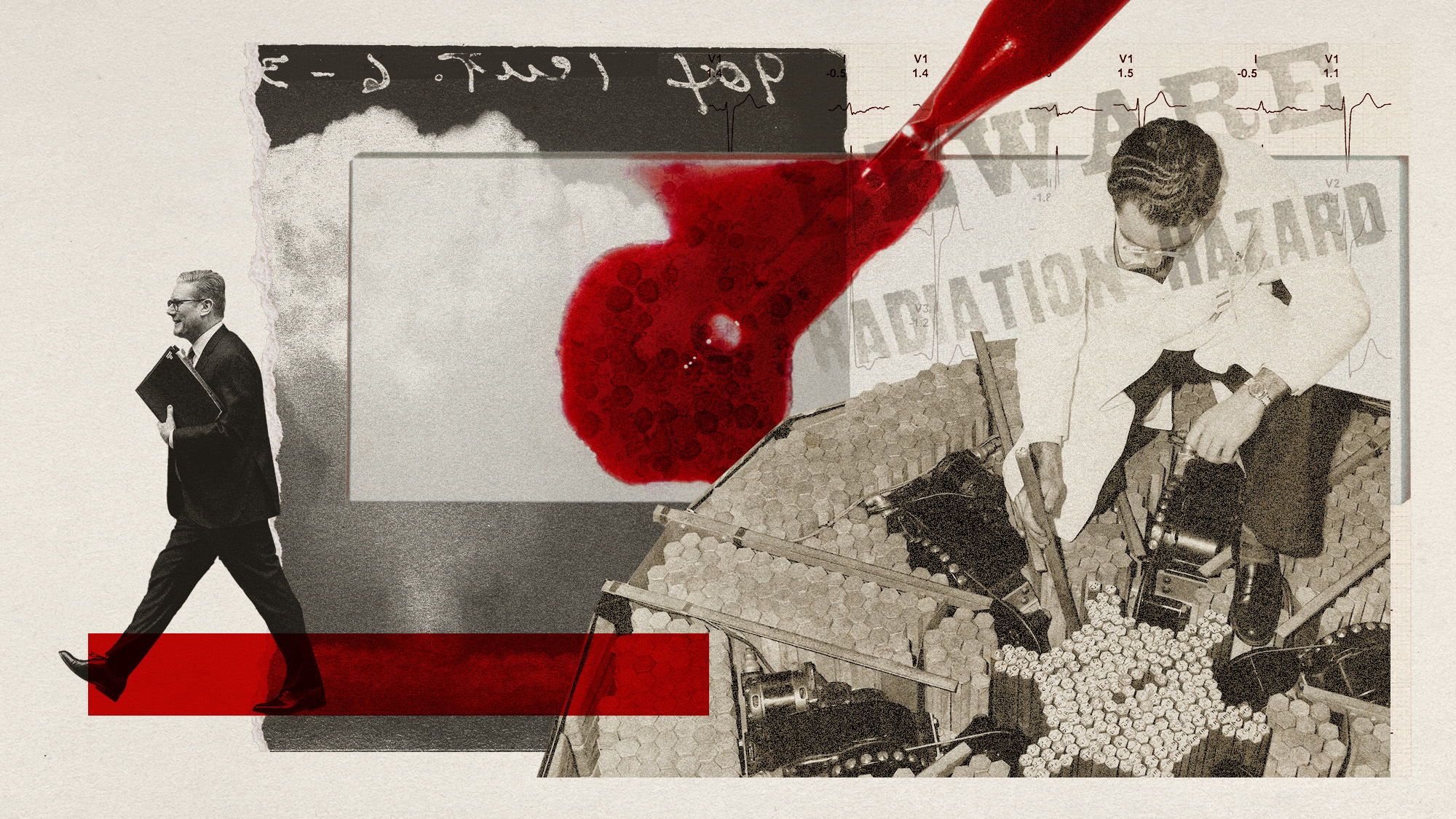Last hopes for justice for UK's nuclear test veterans
Thousands of ex-service personnel say their lives have been blighted by aggressive cancers and genetic mutations

A free daily email with the biggest news stories of the day – and the best features from TheWeek.com
You are now subscribed
Your newsletter sign-up was successful
British veterans are urging Keir Starmer to meet them in their long-standing quest for recognition and compensation for harm they believe was caused by the UK's nuclear testing programme.
Around 22,000 British personnel are thought to have been present at nuclear bomb tests between 1952 and 1991. Forty-five hydrogen and atom bombs were dropped and hundreds of radioactive experiments were carried out in Australia and the South Pacific.
Now this "dwindling band of men", many of whom are now elderly, hope the prime minister will "make good on what they believe was a pledge made by the Labour party," said the BBC.
The Week
Escape your echo chamber. Get the facts behind the news, plus analysis from multiple perspectives.

Sign up for The Week's Free Newsletters
From our morning news briefing to a weekly Good News Newsletter, get the best of The Week delivered directly to your inbox.
From our morning news briefing to a weekly Good News Newsletter, get the best of The Week delivered directly to your inbox.
'Guinea pigs' of the nuclear age
The extensive testing programme "successfully made Britain the world's third nuclear power," said The Telegraph. But veterans allege they and their families were left "blighted by rare medical problems, genetic mutations, aggressive cancers and high rates of miscarriage and death for their children".
Brian Unthank, now 86, who witnessed nuclear testing in the South Pacific as an 18-year-old cook in the Royal Air Force, told The Telegraph that "all his teeth" fell out "within two years of witnessing the bombs". He also had "92 skin cancers removed" throughout his life. His first wife had "13 miscarriages", while one of his sons was "born with two holes in his heart".
"And we all know what it’s caused by: the nuclear test programme," he said. "We were just guinea pigs, lab rats. Nobody told us a word about why we were going there, and in all the years since, we've still never received a word of apology or even a word of recognition from the Government. We just want them to say sorry. There won't be any of us left soon."
Decades-long campaign for justice
Veterans began seeking recognition decades ago, but in 2012 the Supreme Court ruled against 1,000 who made a claim against the Ministry of Defence (MoD). The court found that it was difficult to link their illnesses directly to radiation exposure, and that too much time had elapsed.
A free daily email with the biggest news stories of the day – and the best features from TheWeek.com
Veterans' claims were further complicated by a 2003 MoD-commissioned study, which found only a slight increase in leukaemia risk among veterans and "similar" overall cancer rates to the general population.
But the discovery of the 1958 "Gledhill memo" and other newly declassified documents indicate that blood tests were conducted on personnel, which suggests the government may have secretly monitored radiation exposure, say campaigners. Veterans groups are now seeking full access to these records, although the MoD has said no information is being withheld.
Hillsborough law hopes
Campaigners are now calling on the Labour Party to honour what they believe were past commitments made to them, as part of their quest for both recognition and answers.
In 2019 Labour, then led by Jeremy Corbyn, pledged £50,000 for each surviving British nuclear test veteran. In 2021, Starmer also met veterans when he was leader of the opposition, but "made no promises – and the 2019 offer was not in the 2024 manifesto", said the BBC.
Campaigners are hopeful that the proposed "Hillsborough law", which would require public officials to fully disclose information in cases of alleged cover-ups, could finally bring clarity and accountability on nuclear testing and its effects on veterans.
"Keir Starmer, meet us," said John Morris, 86, who was on Christmas Island in 1956 as an 18-year-old, speaking to the BBC. "All I want is to meet him and get a pathway forward. They have let me down for 70 years."
Sorcha Bradley is a writer at The Week and a regular on “The Week Unwrapped” podcast. She worked at The Week magazine for a year and a half before taking up her current role with the digital team, where she mostly covers UK current affairs and politics. Before joining The Week, Sorcha worked at slow-news start-up Tortoise Media. She has also written for Sky News, The Sunday Times, the London Evening Standard and Grazia magazine, among other publications. She has a master’s in newspaper journalism from City, University of London, where she specialised in political journalism.